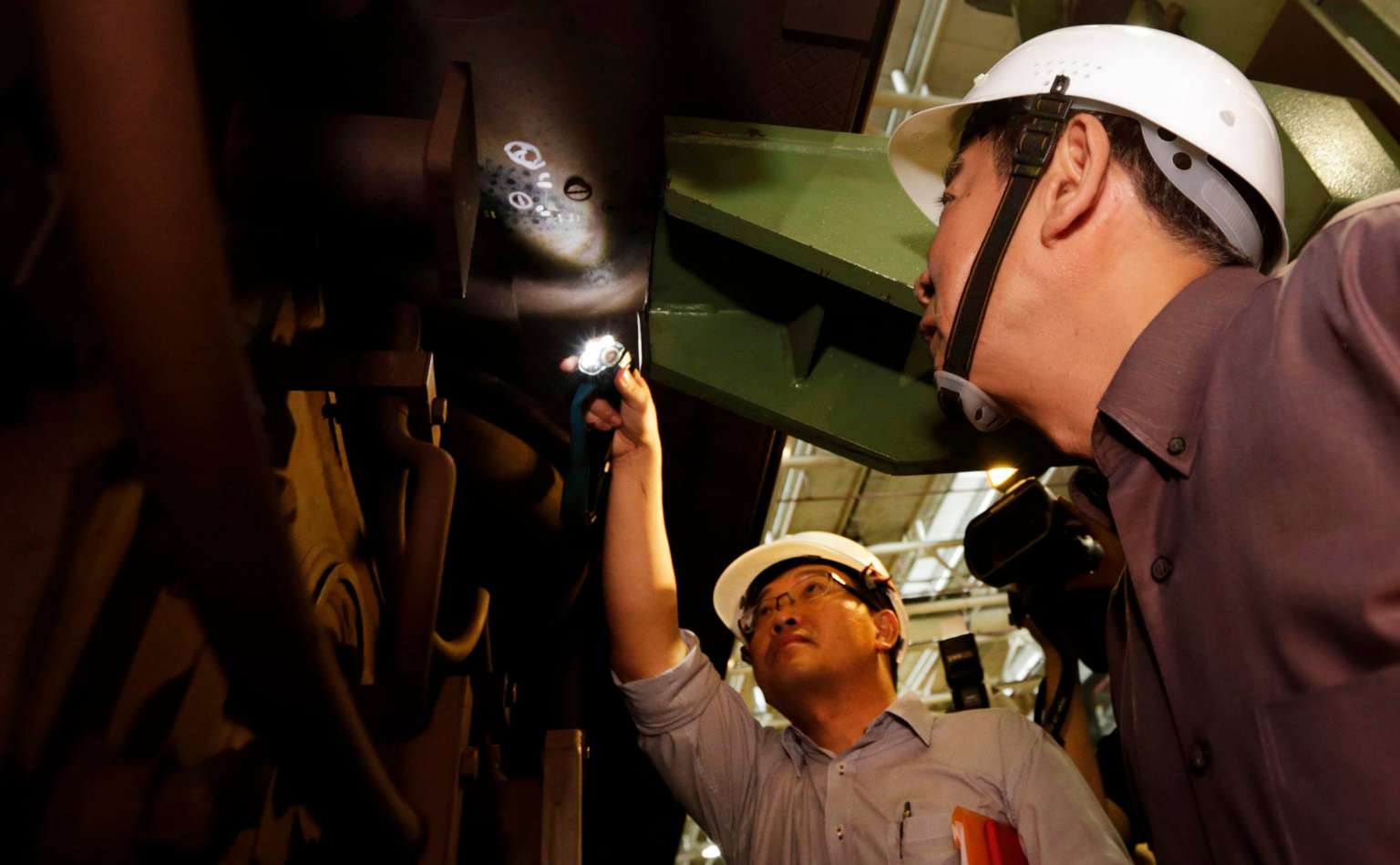Cracks on China-assembled trains not safety risk: Khaw
Supplier showed exemplary behaviour in replacing car bodies, says Transport Minister
Sign up now: Get ST's newsletters delivered to your inbox

Transport Minister Khaw Boon Wan (right) conducts a site visit to the Bishan Depot arranged by the Land Transport Authority (LTA) on July 12 to view one of the affected trains with hairline cracks on the train bolster.
ST PHOTO: KEVIN LIM
Adrian Lim
Follow topic:
Transport Minister Khaw Boon Wan reiterated yesterday that the hairline cracks found on 26 China- assembled trains were not a safety risk, and withdrawing them from service for rectifications did not affect capacity levels on the North- South and East-West lines.
This was why the defects - brought to light last month by Hong Kong media outfit FactWire - were not publicised, he said in Parliament in response to questions from MPs.
He added that the Japanese-Chinese consortium that supplied the trains, Kawasaki-Sifang, won subsequent tenders fairly and had displayed exemplary behaviour in shipping the trains back to China to have their car bodies replaced - at its own expense.
The warranty period on the car bodies and bolster parts was also reset for five years - one year for defective liability and another four years of extended warranty, he said.
Hairline cracks were found in 2013 - some two years after the trains went into service - on the bolsters, an aluminium alloy structure under the train carriages that are welded to the car bodies.
The cracks developed due to defects in the manufacturing process that resulted in impurities being introduced in the aluminium.
Since July 2014, the trains have been sent to Qingdao progressively to be fixed, and five trains have gone through the rectifications. One train is currently in Qingdao, with the other 20 to be rectified by 2019.
"The concern about the defects had thus been resolved when we called the tender for more trains in 2014 and 2015," he told the House.
"Our train tenders have always been conducted in an open and transparent manner, and are based objectively on quality and price assessments," Mr Khaw said, recapitulating points he made to the media last month.
In 2009, Kawasaki-Sifang was awarded an initial $368 million contract to supply 22 new trains for the North-South and East-West lines, with more trains purchased later.
It continued to win more orders, including a $749 million contract in 2014 to supply 91 four-car trains for the upcoming Thomson-East Coast Line.
In reply to Non-Constituency MP Dennis Tan's question about whether cracks were found on other train models, Mr Khaw said they were also discovered last year on the underframe of train cars used on the Bukit Panjang LRT.
He said that manufacturer Bombardier inspected the defects and found the trains safe to operate.
The cracks on the 19 trains are being welded here, Mr Khaw said. To date, 12 trains have been rectified, with the rest to be fixed by October.

